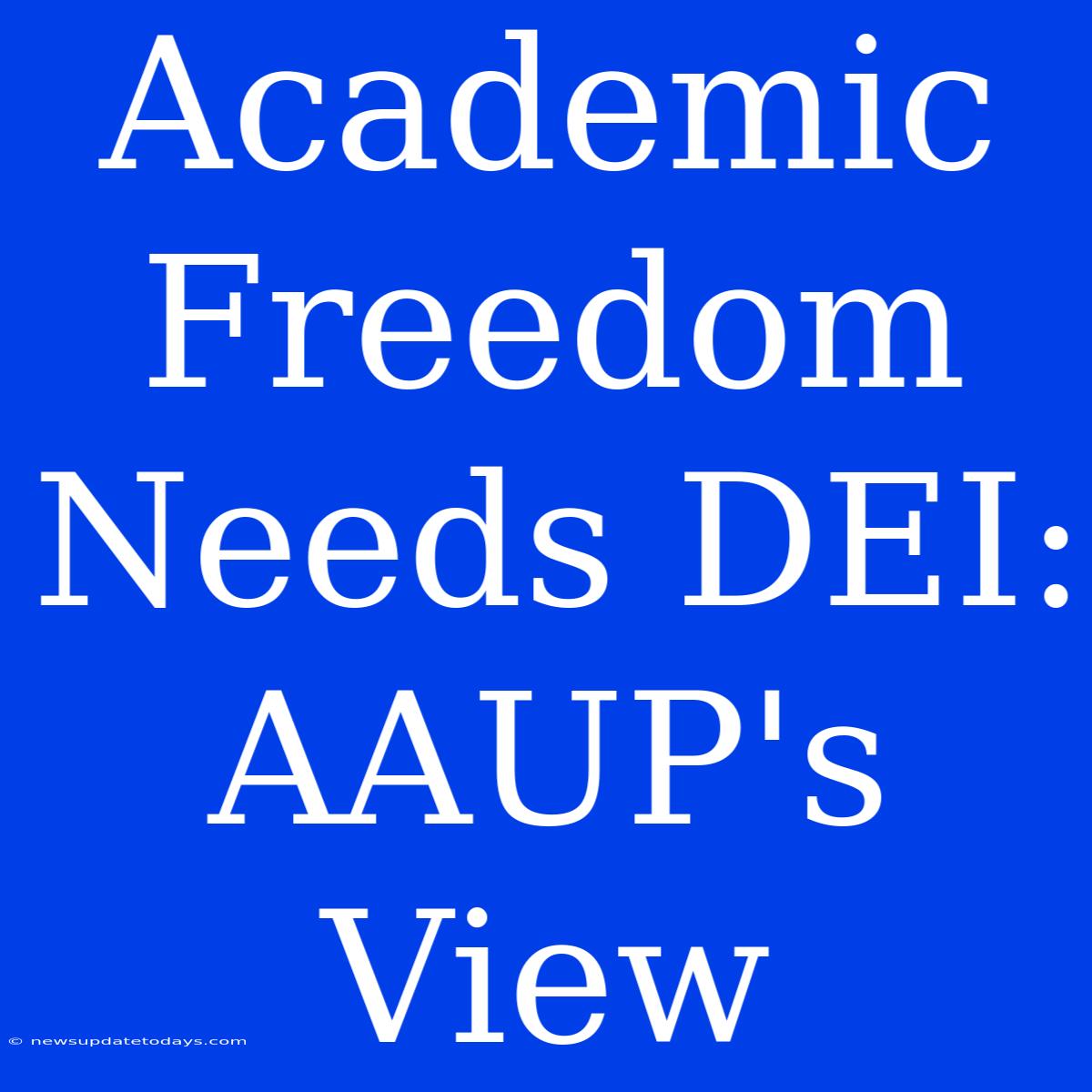Academic Freedom Needs DEI: AAUP's Perspective
The American Association of University Professors (AAUP) strongly advocates for the interconnectedness of academic freedom and Diversity, Equity, and Inclusion (DEI) initiatives. This isn't a matter of choosing one over the other; rather, it's a recognition that a truly free and thriving academic environment necessitates a commitment to DEI. This article explores the AAUP's view, highlighting why DEI is not a threat to, but rather a crucial component of, robust academic freedom.
Why DEI is Essential for Academic Freedom
The AAUP argues that a diverse and inclusive learning environment is not simply a matter of social justice, but a fundamental requirement for robust intellectual inquiry. Restricting viewpoints based on identity undermines the very principles of open discussion and debate that academic freedom champions.
<h3>1. Expanding Perspectives and Challenging Assumptions:</h3>
A diverse faculty and student body brings a wealth of perspectives and lived experiences to the classroom and research settings. This diversity challenges ingrained assumptions, fosters critical thinking, and enriches the learning experience for all. Without DEI, the dominant narratives often remain unchecked, limiting the breadth and depth of academic exploration. This directly impacts the pursuit of knowledge, a core tenet of academic freedom.
<h3>2. Fostering Inclusive Pedagogy:</h3>
DEI initiatives encourage inclusive pedagogical practices that benefit all learners. Creating a classroom where students from diverse backgrounds feel seen, heard, and respected enhances their ability to engage fully in the learning process. This inclusive environment leads to better learning outcomes and a more vibrant intellectual community—crucial elements that strengthen academic freedom’s core mission.
<h3>3. Protecting Marginalized Voices:</h3>
Academic freedom is not just about the freedom to express unpopular opinions; it’s also about ensuring that all voices, especially those of marginalized communities, are heard and respected. DEI initiatives work to create spaces where these voices can be amplified, preventing the silencing of crucial perspectives. Without this inclusivity, the concept of academic freedom becomes a tool for maintaining existing power structures, rather than challenging them.
<h3>4. Promoting a More Equitable Academic Landscape:</h3>
DEI is crucial to addressing systemic inequities within higher education. These inequities—in hiring practices, representation, and resource allocation—can significantly limit the opportunities for certain groups of scholars. By working towards a more equitable landscape, DEI initiatives not only foster a more inclusive environment but also expand the pool of talent and perspectives within academia, enriching intellectual discourse. This ultimately strengthens the very foundation of academic freedom by ensuring broader participation and contribution.
Addressing Concerns about DEI and Academic Freedom
Some argue that DEI initiatives restrict academic freedom by imposing certain viewpoints or limiting free speech. The AAUP counters this by emphasizing that DEI does not require suppressing unpopular opinions; instead, it calls for creating a learning environment where all voices can be heard and debated respectfully, even those that challenge prevailing norms. The goal is not censorship but fostering respectful engagement and understanding.
The AAUP's Commitment to Both:
The AAUP's position is clear: academic freedom and DEI are not mutually exclusive but rather mutually reinforcing. A truly free and just academic environment is one that values both the open exchange of ideas and the creation of an inclusive and equitable community for all learners and scholars. By embracing DEI, higher education institutions strengthen, not weaken, their commitment to academic freedom. This is not just a matter of policy; it's a fundamental commitment to the principles of intellectual inquiry and social justice.

